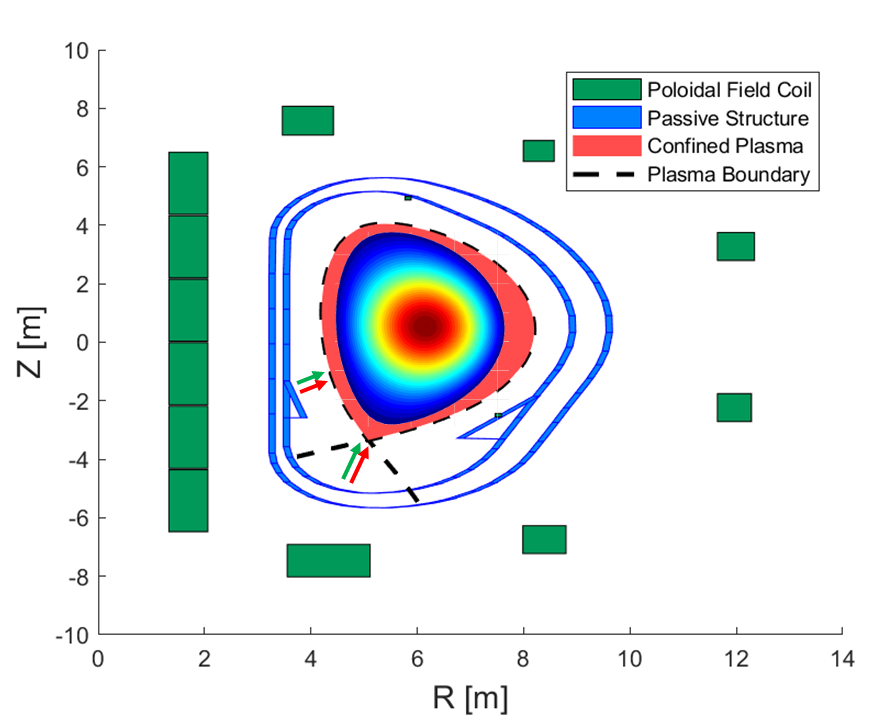Moshman Research is committed to the long-term goal of commercial fusion energy production. We believe we can support and accelerate progress through modeling and simulation and control system design. We have proposed two separate approaches for addressing current challenges at experimental reactors to the DOE. While we have not yet been funded we were encouraged to continue to pursue our ideas and partner with other researchers. We are excited that construction has begun on the International Thermonuclear Experimental Reactor (ITER) in the south of France and we seek to support the future experiments. Here are links to the proposals followed by a summary. Please contact us if interested in these ideas and to give feedback.
[wpdm_package id=’1396′]
[wpdm_package id=’1395′]
Design and evaluation of control systems is critical to the planning of current and future magnetic confinement fusion experiments. These systems must be integrated with experimentally-validated, predictive simulation tools. The multitude of control challenges remaining to achieve commercial fusion power justify treating plasma control as an independent research topic and engaging with control experts. To achieve a steady-state plasma needed for commercially viable fusion energy, more complex, state-space controllers are needed. Moshman Research is engaged in developing software tools for addressing several challenges in the control of burning plasma. Pellet injections of various isotopes and gases have been tested and show beneficial effects on current drive, burn control and disruption mitigation. We will formulate these experiments as optimal control problems and create a method for planning an experiment that delivers superior performance and advances fusion science understanding. Moshman Research is seeking collaborators in the plasma physics community as well as government and private funding.

Moshman Research also seeks to support the small-scale fusion reactor concept. The small-scale fusion concept has high-payoff characteristics related to efficiency and stability. Improvements in the scientific foundations require development of validation platforms which link computational prediction with experiment. Optimizing the performance of current reactors is critical to advancing understanding and extrapolating to more advanced conditions. Magnetic helicity injection and 3D magnetic shaping are promising control mechanisms and current experiments must optimize these techniques.
Moshman Research proposes a tool that will support several small-scale fusion experiments where advanced control methods are being explored. 3D shaping with magnetic coils has numerous benefits to plasma confinement and stability and burn control. Helicity injection can drive the plasma current to an efficient, self-driven state. We will formulate these experiments as optimal control problems and create a method for planning an experiment that delivers superior performance and advances fusion science understanding. Please contact Moshman Research for collaboration or funding inquiries.